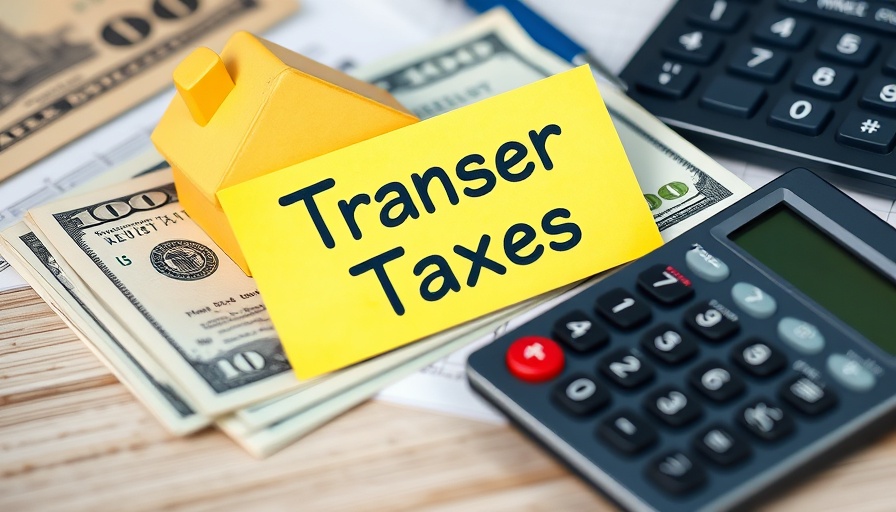
Understanding Transfer Taxes: What Homebuyers and Sellers Need to Know
Transfer taxes are essential fees that can significantly impact real estate deals. If you’re a homeowner looking to sell or buy, understanding these fees, which may amount to thousands of dollars, is crucial. Although they may appear as hidden costs, being aware of them allows for better financial planning and negotiation during the sales process.
What Are Transfer Taxes?
A transfer tax is a government fee applied during the transfer of property ownership. It is typically charged when homes or parcels of land are sold. Transfer taxes can go by various names, including deed tax, stamp tax, and conveyance tax, depending on local regulations and jurisdictions.
Who Is Responsible for Transfer Taxes?
In most circumstances, the seller pays these taxes. However, practices can vary widely. In some states, buyers and sellers can negotiate who pays the tax, splitting the costs. For example, in California, the seller typically covers county transfer taxes, while in Pennsylvania, this cost is often shared equally. States like Texas and Montana don’t impose transfer taxes at all, which can make a significant difference when calculating closing costs.
Calculating Transfer Tax Costs
Understanding how transfer taxes are calculated is key to effective budgeting. Most states assess transfer taxes based on the sale price. This can be expressed as a percentage, generally between 0.5% and 2.0%, or as a fixed amount per $100 or $500 of property value. Knowing your local transfer tax rate and applying it to the property’s sale price allows buyers and sellers to anticipate the total costs accurately.
Why This Matters for the Home Improvement Industry
For home improvement companies and small business owners, understanding transfer taxes can mean the difference between winning or losing a project. When advising clients, it’s essential to incorporate these potential costs into estimates and provide comprehensive advice that includes possible buyer taxes. This insight can foster trust and ensure smoother transactions.
Time to Get Informed!
Being well-informed about transfer taxes not only helps in financial planning but opens the door for better negotiations when buying or selling a property. Consider reviewing local regulations and industry standards to provide the best services to your clients.
 Add Row
Add Row  Add
Add 




Write A Comment